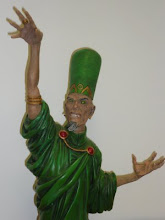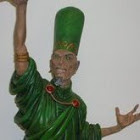
This is a very well written, detailed and thought provoking book that lives up to its sub-title. As an Irishman, for me the English Civil war was lost in the shadow cast by Oliver Cromwell, a shadow long enough to still appear in current political rhetoric here. This book provides a context for Cromwell and the others who followed him that makes much more sense of his actions in Ireland that a straightforward military history or a biography of Cromwell would have. This book explores the social and religious forces that lead to the war and were reinforced and amplified by the war. The two themes of the book are God and hunger, hunger for salvation and the presence of God, hunger as means of getting closer to God, hunger as a political act, hunger as a result of shortages created by the war and the impact of hunger on the conduct of the war and probably the aftermath of the war. Diane Purkiss shows in splendid detail, by drawing on the details of a wide range of lives how the intersection between religion and politics is unstable and explosive. They are fundamentally opposed to each other, the absolutism that has to lie at the roots of religion conflicts directly with the naturally compromising and accommodating methods of politics. The force of certainty takes over politics and power is given force by moral certainty. The way the "papists" transformed from being strictly Catholics into anyone who did not strictly worship as you did is vividly described in the book.
The impact of hunger, spiritual and physical is traced very clearly, it was the most visible and longest lasting aspect of the war on the population at large and on the soldiers doing the fighting. Not only did the actual fighting disrupt the growing and distribution of food, the armies ravaged the countryside in search of food and left communities in states of semi-starvation behind them. Diane Purkiss details some of the effects of starvation on people and the long term effects it can have, it gave an extra edge to the battles and helped extend the growing bitterness and division within the communities.
What I found most interesting, as I usually do when I read history, is how easily an alternative result could have come about. I am always cheered to find out just how important individuals are, how they become the hinges of history without intending or meaning to be, simply by being themselves. Sometimes history can seem like an faceless tide of economic or political forces moving populations without intervention, there are always people at the centre making decisions and being bound by their own personalities. Reading history always reminds me of the National Lottery ad, " It could be you!!"
This is a detailed and densely written book, Diane Purkiss presents a vivid and compelling view of a huge upheaval and how it effected the the lives of those who suffered for it and through it, a great read.


No comments:
Post a Comment